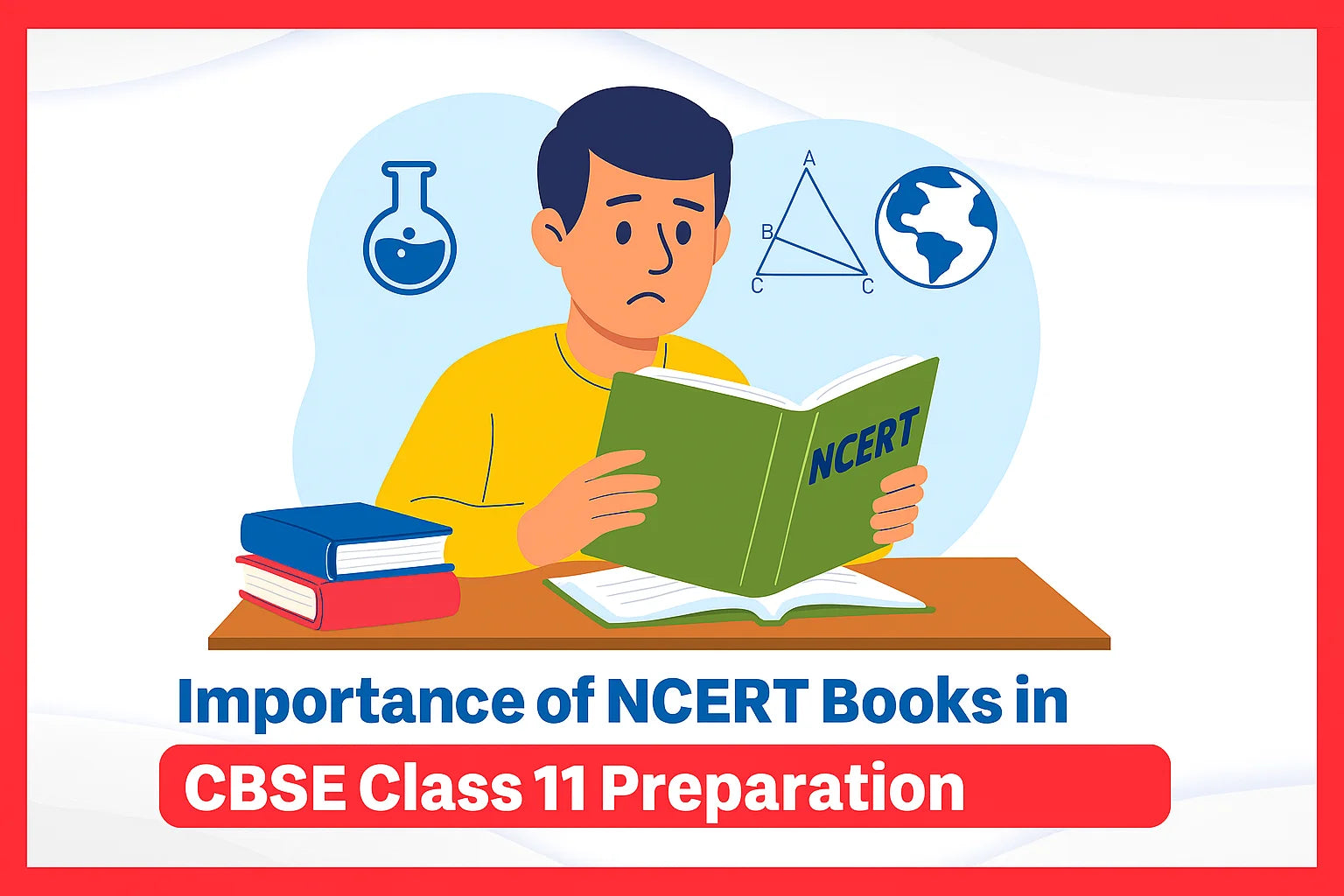Board exam preparation is a milestone for every Class 10 student. Smart work is usually said to be better than hard work, and this is true especially when you understand how to distinguish between the most difficult and the easiest chapters in CBSE Class 10. Although there are chapters that one can learn in a short time, through constant practice, there are chapters that need conceptual knowledge, planning, and a good strategy to learn.
This elaborate blog will help us to understand the easiest and the most difficult chapters of CBSE Class 10 subjects, Science, Mathematics, Social Science, and English, and how to deal with each of these categories. We will also highlight the intelligent use of CBSE latest sample paper class 10, class 10 NCERT exemplar solutions, and monitoring progress through the use of CBSE 10th books and all in one CBSE class 10 support materials.
The Nature of Chapter Difficulty: Why Is One Chapter Easy and Another Tough?
Before we dive into the subject-specific analysis, it would be worth knowing what makes a chapter tough or easy. A chapter turns out hard typically because of:
• Heavy theoretical or abstract content
• Application-based numericals or derivations
• Requirement of multi-step logical reasoning
• Involvement of multiple concepts from previous classes
Conversely, a chapter is easy when:
• It is direct in nature and concepts, and examples
• Questions are predictable and have a definite pattern
• The chapter is, to a large extent, theoretical and memory-based
• Learning is helpful with diagrams or real-life examples
That said, we shall now take a subject-wise analysis.
Subject-Wise Table: Toughest and Easiest Chapters in CBSE Class 10
|
Subject |
Easiest Chapters |
Toughest Chapters |
|
Mathematics |
Real Numbers, Polynomials |
Trigonometry, Applications of Trigonometry |
|
Science |
Life Processes, Control, and Coordination |
Heredity & Evolution, Magnetic Effects of Current |
|
Social Science |
Resources and Development, Nationalism in India |
Agriculture, Globalization, and the Indian Economy |
|
English |
A Letter to God, Nelson Mandela |
The Tale of Custard the Dragon, Footprints Without Feet |
CBSE Class 10 Mathematics: Tackling Easy and Hard Chapters
Why is Trigonometry Considered Tough?
Trigonometry is abstract, highly numerical, and loaded with identities and applications. Students struggle when they don’t understand the relationship between angles and ratios, or fail to apply identities in word problems and heights & distances scenarios.
To make it manageable:
-
Focus on practicing identities until they become instinctive.
-
Visualize problems using triangle diagrams.
-
Refer to class 10 NCERT exemplar solutions to understand the variety and patterns in questions.
How to Master the Easy Chapters Like Real Numbers?
The chapter Real Numbers is conceptually simple. It is based on the Euclid Division Lemma, LCM-HCF, and fundamental theorems. What makes it easy is its limited scope and predictable types of questions.
Solve past year papers and CBSE latest sample paper class 10 to get a firm grip on these chapters. Make sure you’re consistent in solving Euclid’s algorithm and theorem-based proofs.
Which is the Hardest Chapter in CBSE 10 Science?
The answer is Heredity and Evolution. The chapter combines Biology and Genetics, includes inheritance patterns, Punnett squares, and Darwin’s theory. It’s theoretical but demands high understanding of logic and correlation.
To simplify:
-
Create family trees for inheritance to visualize genotypes.
-
Use class 10 NCERT exemplar solutions to tackle HOTS (Higher Order Thinking Skill) questions.
-
Write definitions and differences (e.g., genotype vs phenotype) clearly to avoid confusion.
Why is Life Processes an Easy Chapter?
The chapter on Life Processes is easy because it includes topics already familiar from earlier classes—nutrition, respiration, excretion, etc. The questions are mostly diagram-based or descriptive.
Using CBSE 10th books and illustrations can enhance understanding. Keep flowcharts for digestion and respiration ready for revision.
Approach to Tackle Tough vs Easy Chapters in Science
|
Chapter Type |
Strategy to Tackle |
Tools to Use |
|
Tough Chapters |
Conceptual mapping, notes, and revision cycles |
Class 10 NCERT exemplar solutions, diagrams |
|
Easy Chapters |
Flowcharts, keyword revision, diagram practice |
CBSE 10th books, school notes, CBSE latest sample paper class 10 |
Social Science: Memory + Logic Based Subject
Social Science includes History, Geography, Civics, and Economics. The vast syllabus often confuses students about what is easy and what needs more attention.
Why do students find Geography’s Agriculture chapter hard?
Because it includes mixed content—types of farming, cropping patterns, and geographical conditions. Memorizing everything without context becomes overwhelming.
How to deal with it?
-
Connect with visuals—use maps and crop calendars.
-
Revise definitions and statistics repeatedly.
-
Practice writing short answers with value points from CBSE latest sample paper class 10.
What Makes Nationalism in India Easy?
This History chapter is often cited as one of the easiest. It has a storytelling format, clear timeline, and straightforward event-based questions.
Use timelines and freedom struggle events to build continuity. Link Gandhi's movements with their impact to make it easy to recall during the exam.
Read More: CBSE Class 10 Science Blueprint & Important Topics for 2026 Exam
English: Literature and Grammar Challenges
Why is Footprints Without Feet Difficult for Some Students?
This supplementary book often includes mystery, science fiction, and indirect morals. Students get confused due to complex vocabulary and multiple layers in character emotions.
To improve:
-
Understand the summary thoroughly.
-
Read between the lines to interpret character intentions.
-
Practice unseen extract-based questions using all in one CBSE class 10 material.
Which English Chapters are Scoring?
Chapters like Nelson Mandela: Long Walk to Freedom and A Letter to God are considered easy due to their emotional and narrative-driven content. Answers can be easily drafted if you understand the core message.
Keep summary points and theme analysis ready. Practice question patterns from the CBSE latest sample paper for class 10 to refine your approach.
Literature Difficulty Level & Tackling Plan
|
Chapter |
Difficulty Level |
Tactic for Success |
|
A Letter to God |
Easy |
Understand emotions, moral lessons, and key dialogues |
|
Footprints Without Feet |
Medium-Tough |
Analyze character behavior, prepare chapter-wise Q&A |
|
Tale of Custard the Dragon |
Tough |
Focus on poetic devices, message, and stanza breakdown |
How Can CBSE Sample Papers Help in Chapter-Wise Preparation?
Students frequently ask: Are CBSE sample papers enough for board exams?
The CBSE latest sample paper for class 10 is designed based on the updated syllabus and typology. They not only replicate exam-style questions but also indicate the weightage per chapter. Analyzing them helps students:
-
Understand expected question patterns
-
Manage time for easy and difficult chapters
-
Gauge readiness and identify weak areas
Make it a weekly habit to attempt one full paper under timed conditions. Then refer to marking schemes to self-evaluate.
Common Questions About Chapter Preparation
Q1. Should I focus more on tough chapters or revise easy ones repeatedly?
Both are important. Difficult chapters need time investment, but easy ones should be your score boosters. Allocate 60% of your study time to tough chapters, and the rest to polishing your strong areas.
Q2. Is completing class 10 NCERT exemplar solutions necessary?
Yes, the class 10 NCERT exemplar solutions expose students to higher-order thinking questions. These often appear in the form of application-based or case-study-based questions in the boards. Exemplar questions go beyond rote learning and prepare you for tricky concepts.
Q3. Is reading only CBSE 10th books enough?
The CBSE 10th books are sufficient as they are the official curriculum books. However, to master question patterns, one must refer to CBSE latest sample paper class 10 and class 10 NCERT exemplar solutions to ensure complete command over the subject.
Q4. How do I track my improvement chapter-wise?
Maintain a chapter-wise log after every mock or sample paper. Record marks, errors, and chapter of origin. This will help you pinpoint whether the problem lies in conceptual gaps or silly mistakes.
Practice Comprehensively with Oswaal360 CBSE Online Courses for Class 10 Board Exams 2026
Practice Now with Free Oswaal360 Online Mock Test for CBSE Class 10 Board Exams 2026
Final Strategy: How to Balance Both Ends?
Balancing the toughest and easiest chapters is a strategic task. Use this final framework:
-
Identify weak chapters early in your preparation journey.
-
Use school notes and CBSE 10th books as your base material.
-
Practice additional questions using class 10 NCERT exemplar solutions.
-
Solve CBSE latest sample paper class 10 every weekend.
-
For easy chapters, revise frequently and use them to secure full marks.
-
Keep a “formula/revision” notebook ready for quick brush-ups.
-
Use visuals (flowcharts, timelines, diagrams) wherever applicable.
-
Maintain consistency over intensity—1 hour daily on tough chapters pays off more than 5 hours one day a week.
With a well-planned strategy and consistent effort, even the toughest chapters will feel approachable, and the easiest will become your marks boosters. Remember, CBSE Class 10 is about clarity, consistency, and time management. Use tools like all in one CBSE class 10, CBSE latest sample paper class 10, and class 10 NCERT exemplar solutions wisely—and success will follow.
Let your preparation be smart, not just hard.














